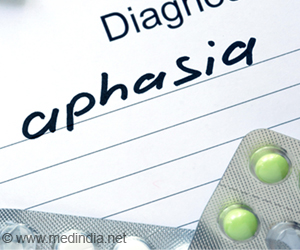Infections during pregnancy, activate maternal immune response which may interfere with genes linked to prenatal brain development.

- Maternal infections during pregnancy slightly increases the risk for psychiatric disorders, including autism spectrum disorders and schizophrenia.
- This increased risk is due to the strong immune response known as ’maternal immune activation’ triggered in the mother.
- The maternal immune activation alters the activity of multiple genes and pathways in the fetus’s brain.
Maternal infections during pregnancy are a known risk factor for abnormal fetal development.
Infections caused by Zika virus lead to an abnormally small head and brain known as ’microcephaly’ in babies. In the case of Zika, the virus has its impact by directly attacking fetal brain tissue. Other infections like influenza have a more indirect impact on fetal development.
Previously studies have shown that a variety of maternal infections during pregnancy slightly increases the risk for psychiatric disorders, including autism spectrum disorders and schizophrenia.
These infections may not be due to the infectious agents themselves, but due to the strong immune response, triggered in a pregnant mother, a phenomenon known as ’maternal immune activation’.
"Nevertheless, the biological cascade triggered by this effect is not well understood, particularly in how it may be similar to known biology behind conditions like autism. This was the motivation behind why we did the study." Lombardo added.
To understand how activating a mother’s immune system might affect the child’s brain development, researchers examined the activity of genes in the brain after injecting pregnant rats and mice with a substance called lipopolysaccharide.
Lipopolysaccharide will elicit a strong immune response in the mother, characterized by an increase in levels of cytokines. These are small immune signaling molecules that can have important effects on brain cells and the connections between these cells known as ’synapses’ in the fetus’s brain.
The scientists found that maternal immune activation alters the activity of multiple genes and pathways in the fetus’s brain.
Many of these genes play a role in the development of autism and other key brain developmental processes that occur before birth.
This may help to explain why maternal immune activation carries a small increased risk for later atypical neurodevelopment.
"The more we understand about how brain development is disrupted by these effects, the higher the chance of finding amenable targets for potential therapeutic intervention or for informing how to prevent such risk from occurring in the first place," says Dr Tiziano Pramparo, senior author on the work from the University of California, San Diego.
The effects caused by maternal immune activation may be very potent during fetal development and may cause different characteristics in the individual depending on when it occurs during pregnancy.
The study published in the journal Molecular Psychiatry.
Reference
- Michael Lombardo et al. Maternal immune activation dysregulation of the fetal brain transcriptome and relevance to the pathophysiology of autism spectrum disorder. Molecular Psychiatry; (2017) DOI: 10.1038/mp.2017.15
Source-Medindia














